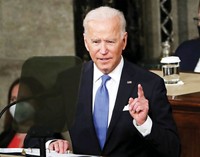Advertisement
Grab your lab coat. Let's get started
Welcome!
Welcome!
Create an account below to get 6 C&EN articles per month, receive newsletters and more - all free.
It seems this is your first time logging in online. Please enter the following information to continue.
As an ACS member you automatically get access to this site. All we need is few more details to create your reading experience.
Not you? Sign in with a different account.
Not you? Sign in with a different account.
ERROR 1
ERROR 1
ERROR 2
ERROR 2
ERROR 2
ERROR 2
ERROR 2
Password and Confirm password must match.
If you have an ACS member number, please enter it here so we can link this account to your membership. (optional)
ERROR 2
ACS values your privacy. By submitting your information, you are gaining access to C&EN and subscribing to our weekly newsletter. We use the information you provide to make your reading experience better, and we will never sell your data to third party members.
Biological Chemistry
Modern Pioneers
Biotech companies challenged at BIO meeting to contribute to global issues
by Lisa M. Jarvis
April 17, 2006
| A version of this story appeared in
Volume 84, Issue 16
As the crossroads of the agriculture, life sciences, and energy industries, Chicago was an appropriate choice for BIO 2006, the annual convention of the Biotechnology Industry Organization. The emphasis of the show was on the biotechnology industry's potential—and its responsibility—to help transform each of those sectors.
Biotechnology will play a critical role in reaching several of the development goals the United Nations has set for the new millennium, former president Bill Clinton told attendees at a plenary luncheon on April 11. Eradicating hunger, securing environmental stability, and improving world health are among the goals that can be achieved by the UN's 2015 target date with the help of the biotech industry, he said.
Those global development efforts, Clinton continued, will also help the U.S. maintain the health of its own economy. "The inequality we've seen in the rest of the world is coming home to America," he said, noting that average wages have fallen steadily in recent years. He said information technology opened the floodgates for private sector growth in the U.S. in the 1990s, but a new source of employment has yet to emerge in this decade.
Clinton contended that clean energy may be the next major source of new employment in this decade, and said biofuels are the low-hanging fruit in that sector. And in the next decade, he said, genomics will replace energy as the catalyst for private sector growth.
While Clinton took a telescopic view of the potential for biotechnology to solve global issues, Secretary of Health & Human Services Michael O. Leavitt focused on how biotechnology will transform individual health care.
"Just like Lewis and Clark did 200 years ago, today we stand on the edge of a new frontier-the frontier of patient-centered medicine," Leavitt said at another BIO function. Over the next decade, Leavitt said, consumers will enjoy personalized health care based on more information about diseases and better control over disease prevention and treatment.
But he acknowledged that real progress in these frontier areas of medicine cannot happen without the support of the government. "We need to reinvent the regulatory process so that we're enabling this era, not inhibiting it," Leavitt noted. He said the Food & Drug Administration's Critical Path Initiative—the agency's effort to modernize the drug development process—is an important step forward.
Biotech leaders caution that the lofty goals set out by Clinton and Leavitt cannot be met without full government support. Intellectual property protection, they said, is particularly important to the ongoing evolution of the industry.
Miles D. White, chairman and CEO of Abbott, said: "Biotechnology has a responsibility to help society thrive. If society wants to enjoy the benefits of biotechnology, it must hold up its end of the social contract." To facilitate that balance, he said, the industry needs to do a better job at explaining "what we do and how our work makes the world a better place."




Join the conversation
Contact the reporter
Submit a Letter to the Editor for publication
Engage with us on Twitter